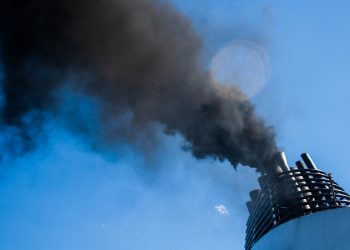The International Civil Aviation Organization (ICAO), International Maritime Organization (IMO) and the United Nations Economic Commission for Europe (UNECE) came together at COP29 with aligned visions to reduce the impact of their respective sectors on climate change.
While civil aviation, inland and maritime transport face distinct challenges and solutions to reduce GHG emissions, they share a common ambition to transition to low- or zero-carbon fuels technologies and infrastructure, and to reshape transport as a pillar of sustainable development and environmental responsibility.
This year, UNECE’s Inland Transport Committee adopted its Decarbonization Strategy, setting an ambitious path towards net-zero emissions by 2050. This path will require transformative policy shifts, groundbreaking technological innovations, and the seamless integration of sustainable practices at all levels of governance.
… said UNECE Executive Secretary, Tatiana Molcean
The UNECE Strategy on Reducing Greenhouse Gas Emissions from Inland Transport sets out the mission of the UNECE Inland Transport Committee (ITC) to assist its member States and Contracting Parties to 61 UN legal instruments under its purview in achieving the aspirational goal of net zero GHG emissions from inland transport by 2050, through enhanced regulatory support, intergovernmental policy dialogue, and increased coordination and partnership among all relevant stakeholders.
🔔For the first time ever, the 3 @UN organizations responsible for #transport – @icao @IMOHQ & @UNECE – came together at #COP29 with aligned visions & common ambition to strengthen #ClimateAction & advance decarbonization across every mode of transport👇https://t.co/uIGXQ0IeZB pic.twitter.com/qcabiabchI
— UNECE (@UNECE) November 20, 2024
The event at COP29 highlighted the recent progress made by UNECE, ICAO and IMO in addressing the impact of their transport sectors on climate change, as well as showcased how their Member States and key stakeholders are contributing to actions necessary to achieve carbon neutrality.
Juan Carlos Salazar, Secretary General of ICAO, pointed out that significant progress has been made and that strong political will can be seen worldwide to achieve the net-zero goal by 2050. ICAO now faces a great challenge to finance this ambitious transition.
Achieving net zero carbon emissions requires adequate financial resources. The international aviation sector will require an investment of approximately USD 3.2 trillion between now and 2050 for cleaner energy transition.
… commented Juan Carlos Salazar
IMO Secretary-General Arsenio Dominguez recalled that international shipping carries more than 80% of international trade and has already improved its energy efficiency performance by over 20% since the first IMO climate regulations came into force.
Both IMO and ICAO aim at carbon pricing and are also looking to strengthen our interaction with UNECE, particularly on programmes which involve multi-modal transport, including maritime, and the green and digital development of the Middle Corridor trade route.
… Dominguez highlighted.































































